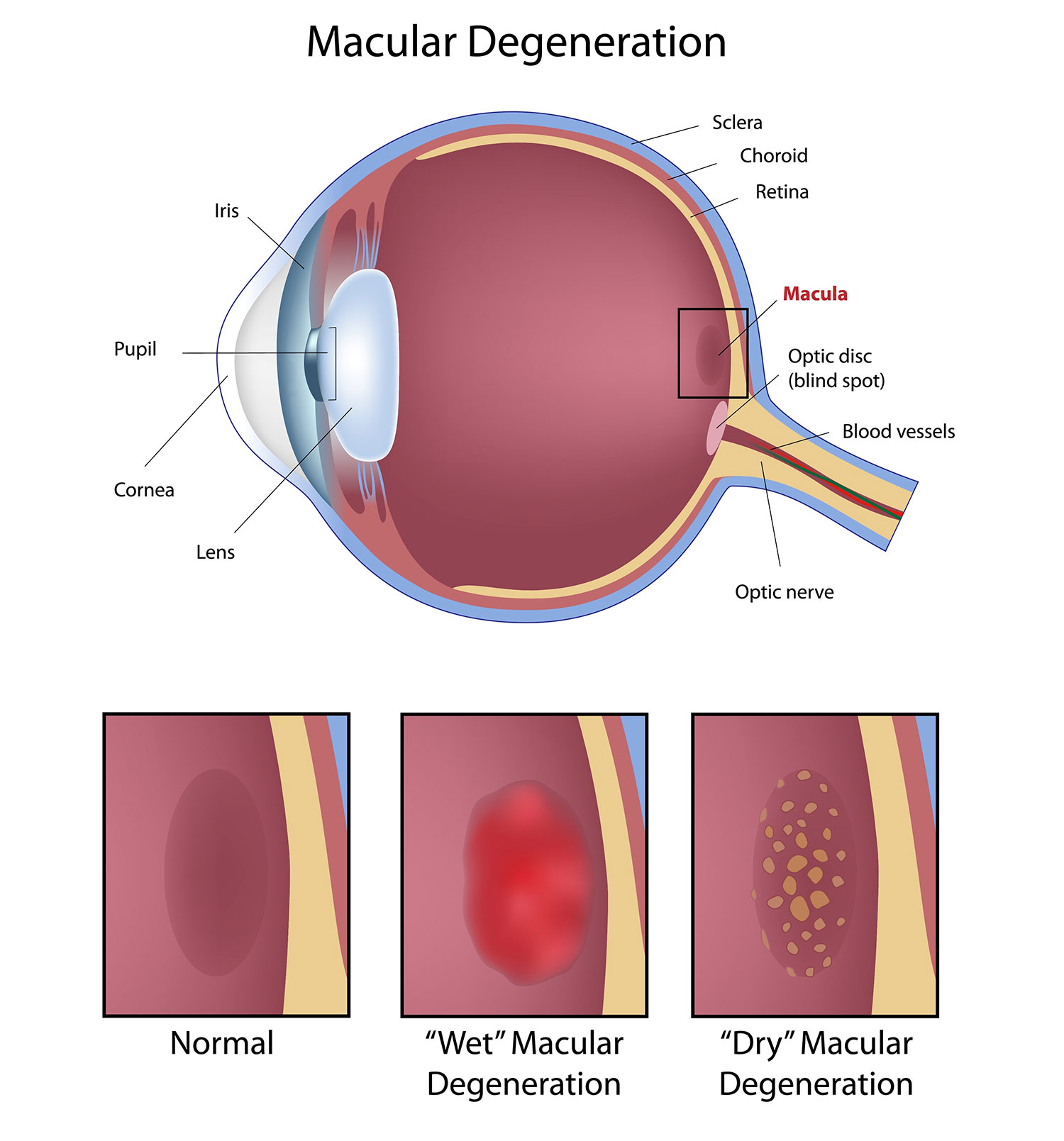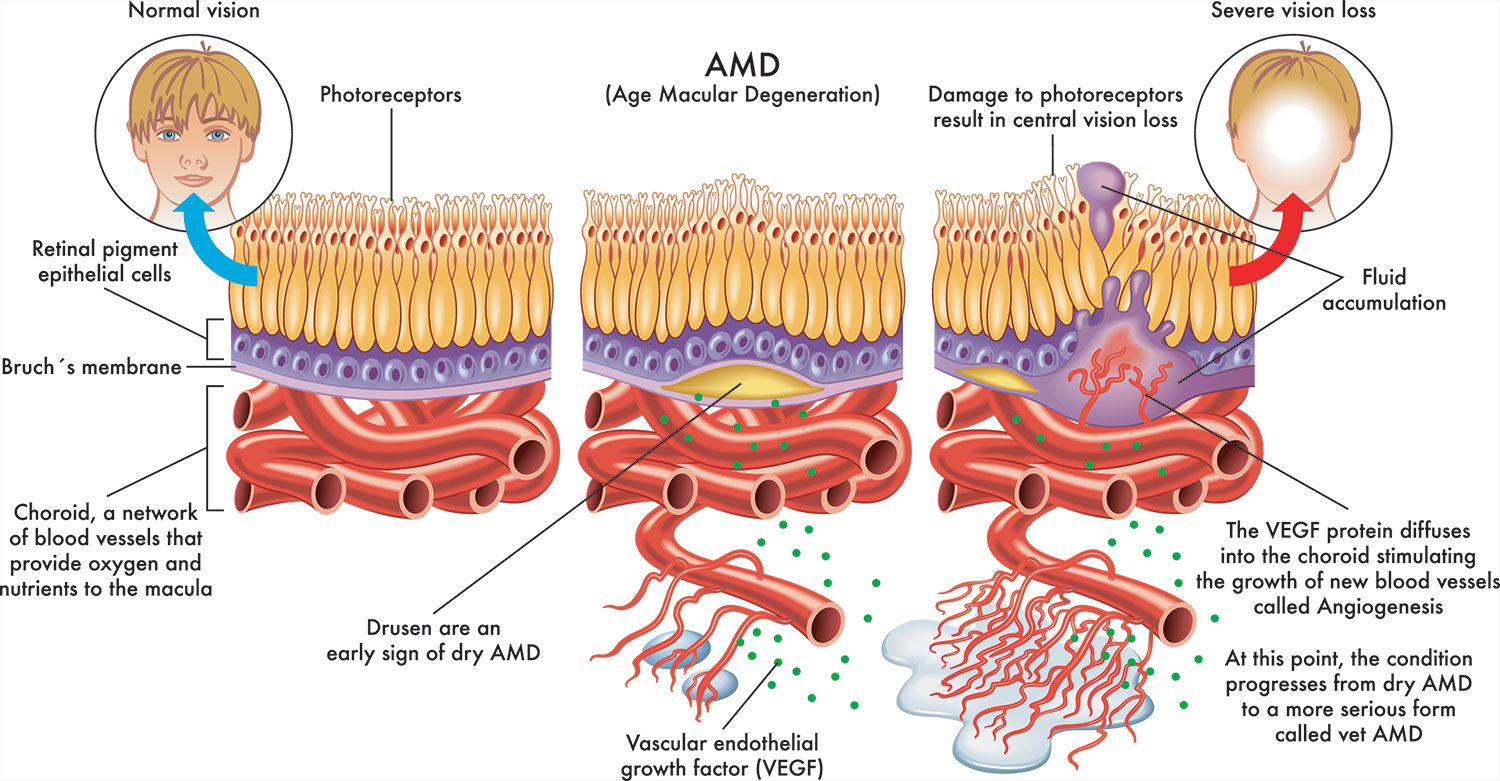Macular Degeneration
(Age Related Macular Degeneration - ARMD)What is Macular Degeneration?
Age Related Macular Degeneration (ARMD) is a disease that affects the retina in the back of your eye. ARMD causes loss of central vision by damaging the macula, which is the center of the retina. There are two types of macular degeneration: dry and wet. The dry type of ARMD is often slowly progressive while the wet type of ARMD can cause vision problems very quickly. The name “wet” refers to leakage of blood and fluid from damaged blood vessels in the eye. Early signs of macular degeneration may not be perceptible to you but late symptoms of macular degeneration can include “wavy” appearing lines, cloudy or distorted central vision, more difficulty seeing in low light or nighttime. A thorough dilated eye exam can help you assess your risk for macular degeneration.
What are the risk factors for developing macular degeneration (ARMD)?
The risk of developing macular degeneration increases with age. There are a few risk factors for developing macular degeneration that are independent of age: family history, smoking, hypertension, and age greater than 50 years. The single most important thing a patient with macular degeneration can do is to stop smoking. Smoking is the most common environmental factor leading to the development and worsening of macular degeneration.
I have a family member with macular degeneration, should I be worried about going blind?
While it is true that having a first-degree relative with macular degeneration does increase your chance of developing macular degeneration, it does not guarantee that you will develop macular degeneration. There are certain genes that increase chances of developing macular degeneration. These genes can sometimes be passed down (or inherited) in families. But having an affected family member, or sometimes, even inheriting a macular degeneration gene, does not mean you will develop macular degeneration. If you have family members who have macular degeneration, it is very important to get an annual dilated eye exam to check for macular degeneration. This must be done every year to ensure the best chance of early diagnosis and treatment if you should develop macular degeneration.
How is Macular Degeneration (ARMD) Treated?
Treatment of macular degeneration depends on the type and the severity of macular degeneration. AREDS 2 eye vitamins are recommended for people with intermediate to advanced macular degeneration of both the dry and wet subtypes. AREDS 2 eye vitamins have been shown is randomized, controlled medical studies to be effective in slowing down the progression of macular degeneration. Wet macular degeneration is caused by leaking blood vessels in the macula of the retina. After years of research, there are now medications available which can “dry up” and stop these blood vessels from leaking. These medications are called anti-VEGF and are given in the form of an injection into the vitreous cavity of the eye. Numerous medical studies show these anti-VEGF injections provide significant benefit for patients with wet macular degeneration.


